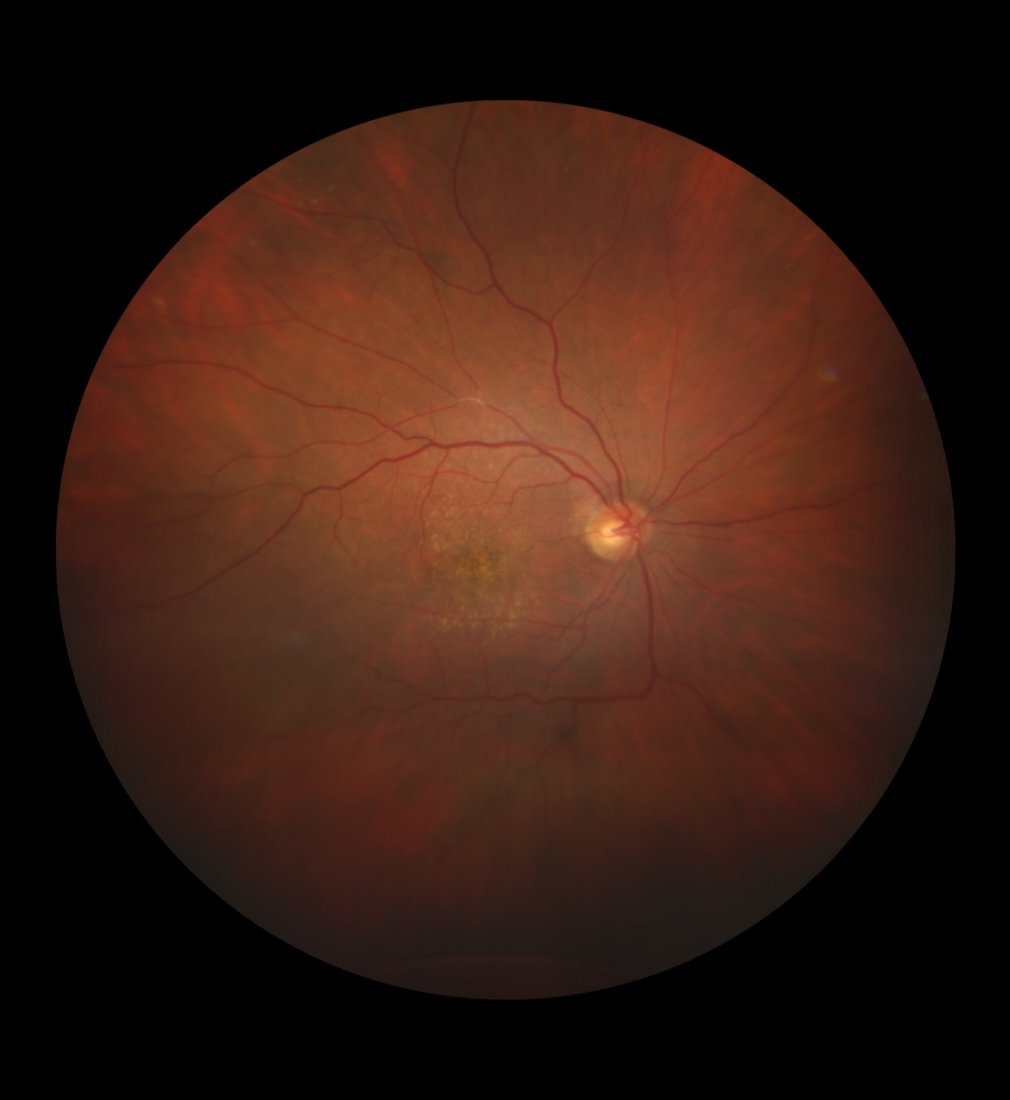MACULAR DEGENERATION
(AMD) is an eye disease that may get worse over time. It’s the leading cause of severe, permanent vision loss in people over 60 years old.
It happens when the small central portion of your retina, called the macula, wears down. The retina is the light-sensing nerve tissue at the back of your eye.
WHAT IS MACULAR DEGENERATION?
Macular degeneration is a problem that occurs in the retina. The retina is a layer of tissue found at the back of the eye. This layer captures the images of light and sends them to the brain to be processed and seen.
The macula is a small portion of the retina and responsible for clearly seeing the details of the objects that the person has in front of themselves. When the macula is damaged, the person loses his or her central vision, but the peripheral vision remains intact. For example, if one looks at a clock on the wall, one will be able to see the numbers, but not the hands of the clock.
Macular degeneration is very common and is one of the leading causes of vision loss in people over the age of 50. Most people with macular degeneration are unaware of it and realize it when they already have irreversible vision loss or when they have a routine eye exam.
Normal Vision
Vision with Macular Degeneration
RISK FACTORS
Eating a diet high on saturated fats.
Cigarette smoking.
Having high cholesterol.
Being female.
Obesity.
Having hypertension.
People over the age of 50.
Having a family history of macular degeneration.
If you take some medicines such as chloroquine.
Suffering from cardiovascular disease.
Being Caucasian.
01
DRY MACULAR DEGENERATION
This is is the most common type of macular degeneration (8 out of 10 people). This is caused by aging, thinning of the tissues of the macula and the accumulation of small conglomerates of protein (drusen). People with dry macular degeneration usually have gradual vision loss. It is very important that people suffering from dry macular degeneration have their central vision monitored regularly and with great attention.
In addition to getting checked at your eye appointment, you can monitor yourself at home with the AMSLER test. This can be obtained from Horta-Santini Eye Care. If you notice a visual change, then notify the Horta-Santini Eye Care team, since it may be the dry macular generation has transformed into wet macular degeneration, the more dangerous version. This occurs in 20% of patients suffering from dry macular degeneration. There is no treatment for dry macular degeneration.
02
WET MACULAR DEGENERATION
While this version is less common, it is more dangerous as it can cause damage to your central vision and loss of patients' ability to see details. This occurs when abnormal blood vessels form under the retinal tissue. These blood vessels can leak fluids or blood, causing scarring of the retina. Patients suffering from this type of macular degeneration lose their vision faster than with the dry version.
The following are possible symptoms that a person with wet macular degeneration may have:
Loss of central vision in one or two eyes.
A well-defined point of vision loss in your visual field.
Distorted vision, with straight lines appearing curved.
Attenuation of colors and darkening of your vision.
Difficulty adjusting to changes in light.
Needing more light to do their daily tasks.
Loss of depth perception.
DIAGNOSIS
01
FUNDUS EXAM
As part of your routine Horta-Santini Eye Care exam, drops will be applied to dilate your pupil. You will then be evaluated with special lenses monitoring changes in the retina and macula.
02
OPTICAL COHERENCE TOPOGRAPHY (OTC)
In this test a dye is injected into a vein the arm. This dye travels to the back of the eye and allows us to evaluate the posterior circulation of the eye. A special camera takes photos in the back of the eye thus identifying the abnormal blood vessels to then be treated.
03
FLUORESCEIN ANGIOGRAPHY
Is a way to more closely inspect the retina. A machine photographs the retina and provides detailed images of the retina and macula.
TREATMENTS
DRY MACULAR DEGENERATION
There is no treatment for this type of condition. But if benefits have been found in supplements and special diets for those who have drusen or severe vision loss.
Studies known as AREDS and AREDS2 showed that people with drusen can slow the progress of macular degeneration by taking certain vitamins and minerals daily:
Vitamin C (500 mg)
Vitamin E (400 IU)
Lutein (10mg)
Zeaxanthin (2mg)
Zinc (80 mg)
Copper (2 mg)
The Horta-Santini Eye Care team can let you know if you will benefit from this type of supplement.
Beta-carotene should be avoided in smokers since it can increase the likelihood of lung cancer.
A diet high in green vegetables, fruits and yellow vegetables, fish has been shown to be beneficial for people with macular degeneration.
WET MACULAR DEGENERATION
Anti-VEGF drugs that have been developed to treat it. These medications help eradicate anomalous blood vessels and decreasing their leakage of fluid or blood. These medications are injected into the back of the eye. There is also laser treatment that can be applied for certain cases.





